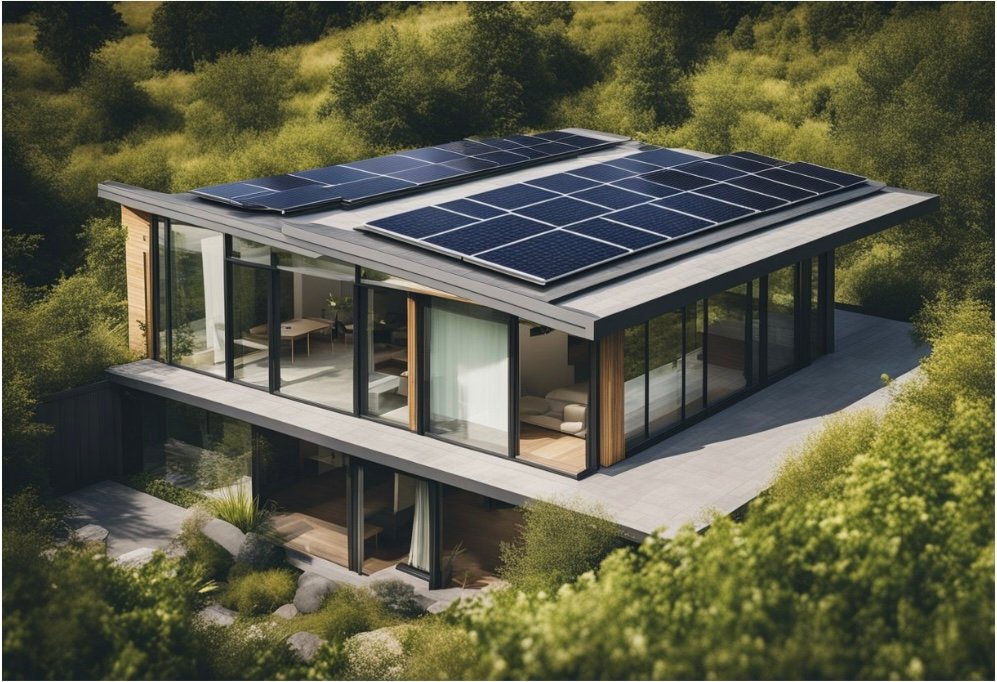Debunking Top Solar Myths and Misconceptions
Many potential solar energy users have a distorted view of solar technology based on myths and misconceptions. These misunderstandings can lead to missed opportunities for individuals and communities. Addressing these myths is essential for making informed decisions about solar energy investments.
Some common beliefs, such as the idea that solar panels do not work in cloudy weather or that they are too expensive to install, hinder the adoption of sustainable energy solutions. By clarifying these misconceptions, individuals can better assess the viability and benefits of solar energy.
This blog post aims to shed light on the most prevalent solar myths, providing factual information that empowers readers to embrace renewable energy with confidence. Understanding the reality behind these myths can pave the way for smarter energy choices and a greener future.
Understanding Solar Energy
Solar energy is a clean and renewable source of power harnessed from sunlight. It is essential to grasp the basic principles of how solar energy works and to identify common misconceptions that can lead to misunderstandings about solar technology.
Basic Principles of Solar Power
Solar power operates on the principle of converting sunlight into electricity through photovoltaic (PV) cells. These cells are typically made from silicon and generate direct current (DC) electricity when exposed to sunlight.
This electricity is then converted to alternating current (AC) through an inverter, making it usable for homes and businesses. Metro Express Solar uses advanced technology and high-efficiency solar panels to maximize solar energy capture.
Key components of solar power systems include:
- Solar Panels: Collect sunlight.
- Inverters: Convert DC to AC.
- Batteries: Store energy for later use.
Understanding these components helps in evaluating solar energy systems effectively.
Common Misconceptions About Solar Panels
Many misconceptions exist about solar panels, leading to hesitance among potential users. A common myth is that solar panels are ineffective in cloudy or rainy weather. In reality, solar panels can still generate power even in less than ideal conditions, albeit at reduced efficiency.
Another misconception is that solar energy systems are too expensive. While the initial investment can be significant, various financing options and government incentives can make solar energy more accessible.
Additionally, some people believe that solar panels require excessive maintenance. In fact, they are designed to be durable and generally require minimal upkeep.
By addressing these misunderstandings, potential users can better assess the benefits of solar energy for their needs.
Addressing Solar Myths
Solar energy is surrounded by various myths that can deter potential users. Understanding the reality behind these misconceptions is crucial for informed decision-making.
Myth: Solar Only Works in Sunny Climates
Many believe that solar panels are ineffective in cloudy or rainy regions. In reality, solar technology can capture sunlight even on overcast days. It is not about direct sunlight; solar panels use diffuse light effectively.
For instance, places like Germany, known for their cloudy weather, rank among the top solar energy producers in the world.
Key Points:
- Solar panels generate power with limited sunlight.
- Regions with less sun can still benefit significantly from solar energy.
Myth: Solar Panels Are Too Expensive
The perception that solar panels require a hefty upfront investment can be misleading. While initial costs can seem high, prices have dropped significantly in recent years.
Technological advancements and economies of scale have made solar installations more affordable. Incentives, such as tax credits and rebates, further reduce costs for many homeowners.
Financial Aspects:
- Average cost of solar installations has decreased by about 70% since 2010.
- Various financing options are available, making solar more accessible.
Myth: Solar Is Not a Reliable Energy Source
Another common belief is that solar energy isn’t a dependable power source. In fact, solar panels can produce energy consistently, even outside peak sunlight hours.
Energy storage solutions, like batteries, allow users to store excess energy for use during nights or cloudy days.
Reliability Factors:
- Solar installations often come with warranties lasting 25 years or more.
- Grid-tied systems provide a backup during periods of low solar production.
Addressing these myths clarifies the potential of solar energy, encouraging more individuals to consider its benefits.
Benefits of Solar Energy
Solar energy presents significant advantages across various sectors, including environmental, economic, and property value aspects. Understanding these benefits can help individuals and businesses make informed decisions about solar investments. Solar energy reduces electricity bills, lowers carbon emissions, promotes energy independence, and provides a sustainable, renewable energy source for future generations.
Environmental Advantages
Solar energy offers substantial environmental benefits. It significantly reduces greenhouse gas emissions, contributing to cleaner air and a healthier planet. Unlike fossil fuels, solar energy generation does not produce harmful pollutants such as carbon dioxide and sulfur dioxide.
Additionally, solar panels use sunlight, a renewable resource. This leads to a reduction in dependence on non-renewable energy sources, therefore conserving natural resources and promoting sustainability. The use of solar also helps minimize water usage compared to traditional energy generation, making it a crucial component in protecting water supplies.
Economic Savings and Incentives
Investing in solar energy can lead to considerable economic savings for both homeowners and businesses. Initially, the installation of solar panels may require a significant investment; however, the long-term savings on electricity bills can be substantial. Many homeowners see a notable reduction in monthly utility costs.
Moreover, various incentives exist to encourage solar adoption. Federal, state, and local governments often provide tax credits, rebates, and financing options to offset installation costs. Companies like Metro Express Solar can assist potential users in navigating these opportunities, making solar energy more accessible.
Solar Energy and Home Value
The installation of solar panels can enhance the value of a home. Properties equipped with solar energy systems often attract higher sale prices compared to those without. Studies indicate that homes with solar installations generally sell faster and offer better returns on investment.
Additionally, homes with solar energy systems benefit from energy independence. As utility rates continue to rise, a solar-powered home can provide enhanced financial predictability. This appeal can be particularly advantageous in competitive real estate markets, positioning solar-equipped homes favorably among prospective buyers.







